Paul Kent: George Williams’ Canberra Raiders departure reveals a worrying trend in the NRL
When did modern-day footballers become so overindulged to believe it’s okay that they don’t have to turn up to their job? PAUL KENT asks.
Opinion
Don't miss out on the headlines from Opinion. Followed categories will be added to My News.
The dignity that is in a hard day’s work is lost on many modern footballers.
It is an understanding now kept alive by shift workers and previous generations.
Nowadays, the self-help gurus tell us to grow up and find a job that you love and you will never have to do a day’s work in your life.
Oh, it sounds beautiful.
Who does not want to sign up for a life like this, never having to do a solid day’s work in our life. No need for an alarm clock, just awake each morning when the sunlight gently kisses our eyelids.
Then breeze through the day doing something that is called work and pays handsomely for it.
This is not the way it always used to be.
Watch The 2021 NRL Telstra Premiership Live & On-Demand with No Ad-Breaks During Play. New to Kayo? Try 14-Days Free Now >
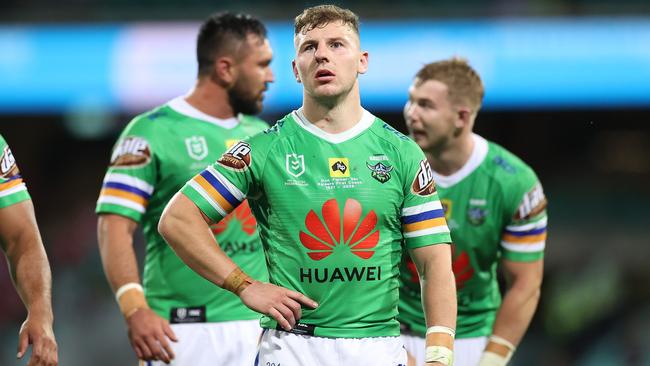
I was a young boy who never saw my father in the morning because, by the time I got up for school, he was already at work.
He did it because he had to provide, sometimes through jobs he did not always like, for a wife and two young boys.
There is a dignity in that, a good day’s pay for a good day’s work, that is frowned upon nowadays.
For his generation, though, that is what a man does.
Matthew Johns has spoken often about his father Garry coming home from a day in the mines covered in coal dust and urging his boys to find another way to make a living.
At the time, like most young boys, Matthew and Andrew wanted to grow up to be coal miners like their dad.
He knew the reality of hard work and steered them in other directions.
So this week, George Williams texts the Canberra Raiders’ welfare officer and tells him things are sad at home and he cannot attend training.
If there was irony in such a bad situation it was that Williams was a professional footballer. He was doing the job where, according to the self-help gurus, he did not have to work a day in his life.
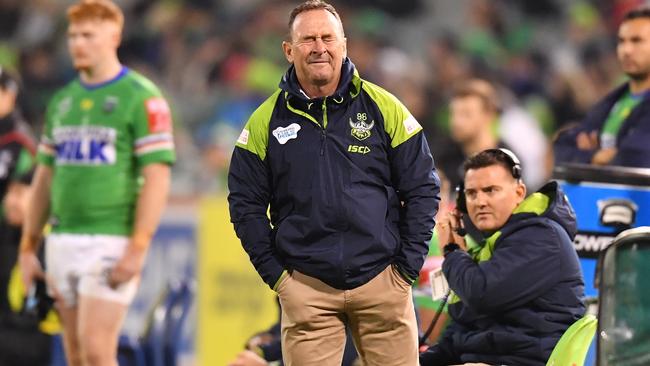
Who did not want to grow up being a professional footballer?
But that is soon forgotten nowadays.
Coach Ricky Stuart called Williams to find out the problem and Williams told him also he was no good to train and, now that he thought about it, no good to play Saturday against the Sydney Roosters.
In the background, Stuart knew three times this month Williams had asked to be released from his contract at season’s end because he was homesick and wanted to return to England.
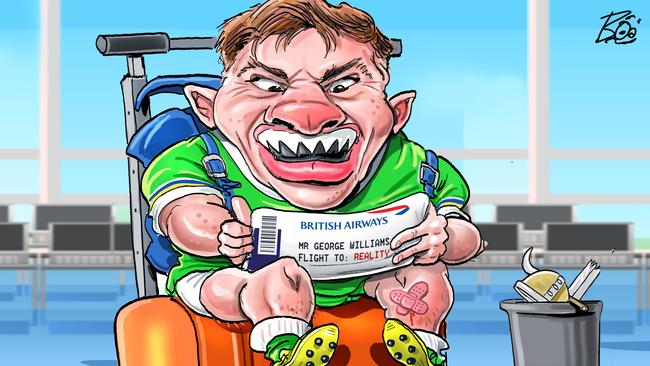
The Raiders had done everything to keep him. When they first became aware of his homesickness they immediately got him and his partner professional help and, as the requests to go home continued, they told him he could take 12 weeks leave at the end of this season to return to England and return to training late.
They hoped it would ease the homesickness.
But Tuesday he couldn’t train and could not play, telling the club that.
He expected to remain on full pay, apparently, and no guarantees he would be back the following week were given.
Where else this kind of work exists, pay for no play, he did not say, but he seemed to think it existed in Canberra.
The indulgences around this are extreme.
They do not exist everywhere, yet.
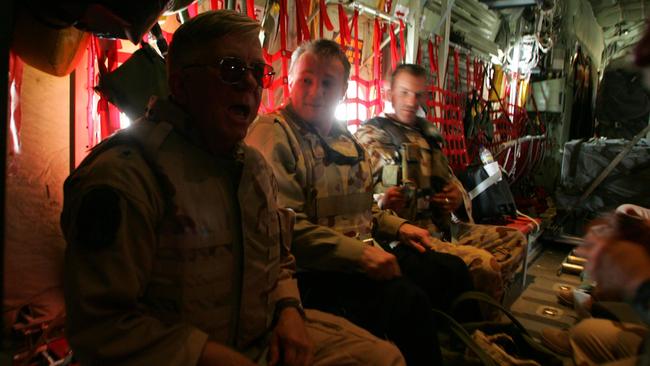
And I suddenly remember attending a briefing inside a tent at Camp Smitty in southern Iraq in 2005. A young captain was pointing to a map and telling his soldiers where they would be patrolling that night, and what the enemy intelligence was, and I recall his presence in this room and the clear, confident sentences he spoke and it is such that it was hard to believe he was no older than any of the men playing in the NRL today.
This captain had a duty to lead his men that night and to get them home safely. He could not tell command he did not feel like leading a patrol this night.
So, instead, he went into the darkness where the enemy had weapons.
Williams attempted to put his version across on social media this week after news broke that the Raiders had released him.
“Not once did I ask for a [sic] immediate release but instead of supporting me the club kicked me out the door,” he tweeted.
Nearly a dozen of Williams’ teammates “liked” his tweet.
Afterwards teammate Josh Hodgson claimed he struggled to understand why the Raiders did not want to release Williams at the end of the year, given he was also contracted for 2022, but then released him immediately after Tuesday’s no-show.
It was, apparently, a genuine thought.
These collective hugs are doing no-one any good.
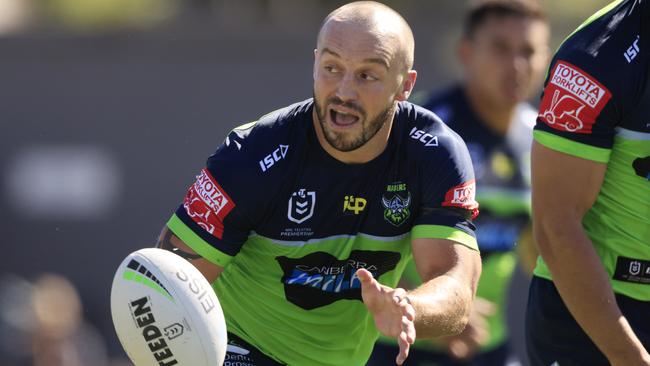
The clear, precise sentences that leave no room for misunderstanding in patrol meetings in Iraq slowly disappear from our world and weakness pushes into the space it creates.
Canberra’s response to Williams has drawn criticism but, importantly for the Raiders, it broke a cycle of indulging players with diminishing returns.
This overindulgence has led to this situation where too many believe it is acceptable to withdraw from work nowadays because there is enough going on at home to make them feel like not turning up.
It is not just a rugby league problem, but it is amplified in the NRL where coaches are so reliant on talent for their job security they indulge the moods of players, prepared to wear short-term setbacks for long-term success.
These coaches refuse to call their players on it because talent is king, and everybody else goes along with it to remain politically correct, and to avoid upset feelings. And so, for the players, the behaviour becomes normalised and the circle of indulgence continues.
If a coach does call his players on it, he risks the message rebounding around the echo chamber of the dressing room where, all too quickly, he can lose the dressing room, so the cycle continues.
Except in Canberra this week, where the Raiders made their statement.

…
As far as fight preparations go it was one of the more bizarre, and the ramifications are fascinating.
Australian heavyweight champion Justis Huni fought Wednesday night in Sydney just three weeks before his big money pay-per-view fight against Paul Gallen, with Gallen ringside to call the fight.
Huni was never in trouble against Christian Tsoye, the fascination coming more because it had the feel of letting Gallen into the gym during his training camp to let him watch Huni spar and prepare for their fight.
What is certain is that Gallen and his camp left the night convinced he is a chance to spring a major upset against Huni, who won the heavyweight title in his professional debut and in August will leave for Tokyo to fight at the Olympics.
If Gallen thought he was an outside chance before the fight he is much more confident having watched Huni fight.
Gallen is a pressure fighter and believes Huni struggled when Tsoye pressured him, ultimately emerging triumphant because Tsoye was not fit enough to maintain the pressure.
There is no doubt Gallen has the fitness to maintain the pressure on Huni throughout the entire 10 rounds.
Huni’s punching power, which can’t always be properly assessed by watching on television, also brightened Gallen’s hopes.
More Coverage
Originally published as Paul Kent: George Williams’ Canberra Raiders departure reveals a worrying trend in the NRL





